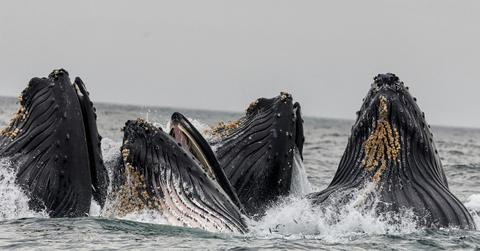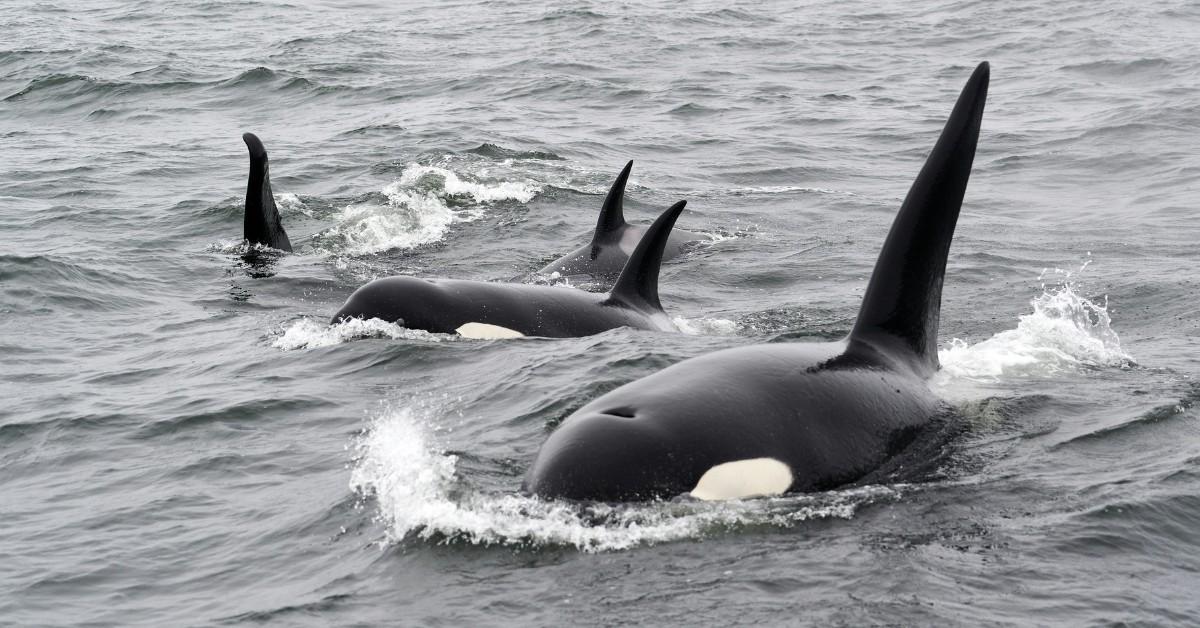Whale Songs Aren’t Just Noise – They Have Surprising Similarities to Human Speech, Study Finds
Research indicates that whale songs use some of the same building blocks found in human language.
Published Feb. 7 2025, 11:49 a.m. ET

When you think of whale songs, you may picture Dory from Finding Nemo, as she "speaks whale" to the passing mammals in an effort to help little Nemo find his way back to his dad. And while the noise she makes does sound a lot like gibberish to us — and to the skeptical fish and sea creatures she encounters along the way — it turns out that everyone's favorite forgetful fish was actually onto something.
That's because whale songs aren't just noise, they have surprising similarities to human speech, according to a February 2025 scientific study.
And while that means that Dory was sort of correct when she insisted that she knew how to "speak whale," it also means that whales may be capable of more complex communication than previously though. You can learn more about the study's findings below.

Study finds that whale songs follow similar patterns to human speech.
After monitoring eight years of recordings of communications from humpback whales in New Caledonia, researchers discovered that whales use a lot of the same elements that can be found in human speech patterns. The study was published on Feb. 6, 2025 in the journal Science, where researchers shared their data and their findings.
According to them, whales follow the same patterns we do when speaking, which means that whales learn their own sounds and songs the same way babies learn to speak.
The specific term used to describe this is called "Zipfian distribution," according to The Guardian, and it is used to describe the frequency of the most used words. For example, if "the" is the most used word, humans say it twice as much as they say whatever the second most used word is. This pattern continues throughout speech, creating a "Zipfian distribution" of words.
As for the whales, their "Zipfian distribution" has more to do with the specific sounds they are using to create their songs, but researchers say that the pattern distribution remains the same, which offers them more insight into the songs that pods of whales around the world are singing... and where they learned the songs in the first place.
Whales can learn new songs and share them across generations.
One of the co-authors of the study shared her excitement about the discovery, according to The Guardian, saying that it allowed researchers to gain some insight into some of the more nuanced things about whale song, namely how they are learned and just how frequently they can change.
“Human language and whale song are both culturally learned, so whales learn the songs from the other whales that they spend time with," Dr. Jenny Allen explained. "So that’s why all the whales in one population will be singing the same song.”
Of course, this doesn't mean that humans will be able take a page from Dory's book and "speak whale" to communicate with the mammals. Instead, this discovery is more about how the sounds are learned as opposed to what they actually mean.
While the study says that this similarity was previously believed to only exist within the realms of human speech, it sounds like researchers are now questioning what they once thought they knew about how animals learn sounds, as well as the cultural significance in their transmission, something that may change our views when it comes to how much humans have in common with these Titians of the sea.